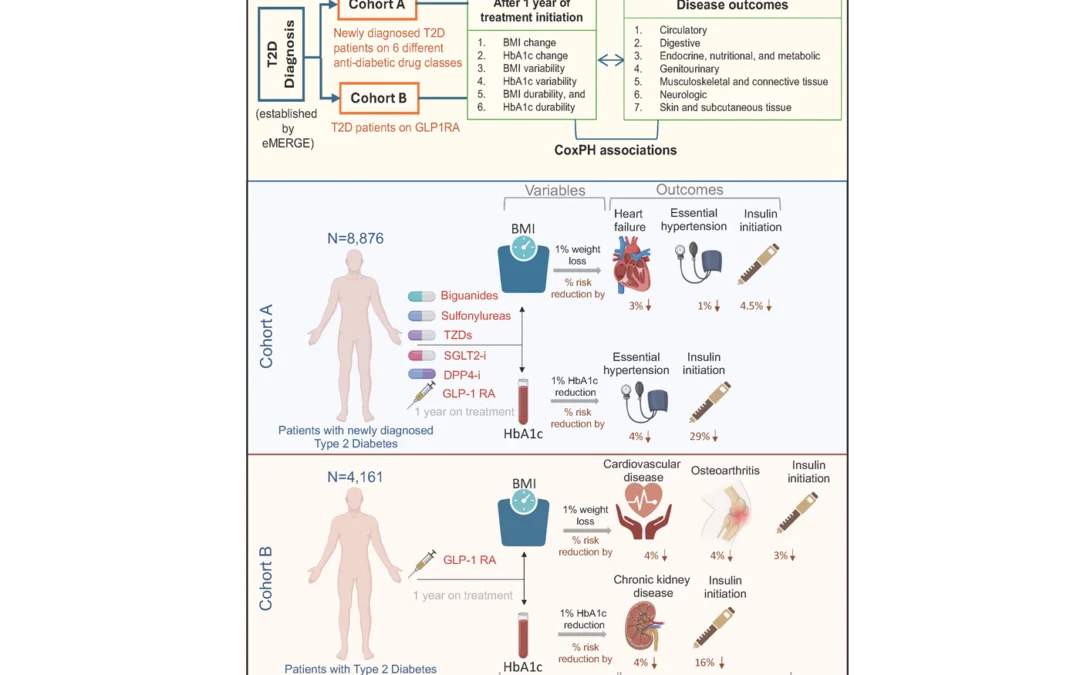A retrospective cohort study just published in Diabetes, Obesity and Metabolism investigated the independent contributions of glycated hemoglobin (HbA1c) reduction and weight loss to clinical outcomes in patients with type 2 diabetes (T2D) treated with antidiabetic drugs including glucagon-like peptide-1 receptor agonists (GLP-1RAs). Investigators used deidentified electronic health record data from patients evaluated at the Cleveland Clinic from 2000 to 2020. Cohort A included 8876 patients with newly diagnosed T2D treated with any of six antidiabetic drug classes. Cohort B included 4161 diabetic patients in whom GLP-1RA treatment was initiated. The effects of body mass index (BMI) and HbA1c reduction were evaluated, in addition to outcomes such as cardiovascular disease, heart failure, hypertension, insulin initiation, and chronic kidney disease.
In the GLP-1RA group (Cohort B) each 1% BMI reduction was associated with 4% and 3% reduced risk of cardiovascular disease (p = 0.008) and insulin initiation (p = 0.002), respectively. Each 1% (~11 mmol/mol) HbA1c reduction was associated with 4% and 16% reduced risk of chronic kidney disease (p = 0.014) and insulin initiation (p = 1 × 10−4), respectively.
In Cohort A, each 1% BMI reduction was associated with 3%, 1%, and 4% reduced risk of heart failure (p = 0.017), hypertension (p = 0.006), and insulin initiation (p = 0.001), respectively. Each 1% (~11 mmol/mol) HbA1c reduction was associated with 4% and 29% reduced risk of hypertension (p = 0.041) and insulin initiation (p = 0.001), respectively. Lower BMI variability and greater BMI durability were associated with decreased risk of problematic clinical outcomes in both cohorts.
Bottom Line: Decreases in body weight and HbA1c (regardless of the drug used) can reduce the risk for cardiometabolic complications for adults newly diagnosed with type 2 diabetes. Each 1% reduction in weight was associated with a 3% decrease in the likelihood of initiating insulin therapy, independent of glycemic improvements.
My take on the results is that “it’s about the BMI,” and even SMALL victories make a difference! That should be encouraging to patients.
–Caroline

Dr. Fife is a world renowned wound care physician dedicated to improving patient outcomes through quality driven care. Please visit my blog at CarolineFifeMD.com and my Youtube channel at https://www.youtube.com/c/carolinefifemd/videos
The opinions, comments, and content expressed or implied in my statements are solely my own and do not necessarily reflect the position or views of Intellicure or any of the boards on which I serve.



